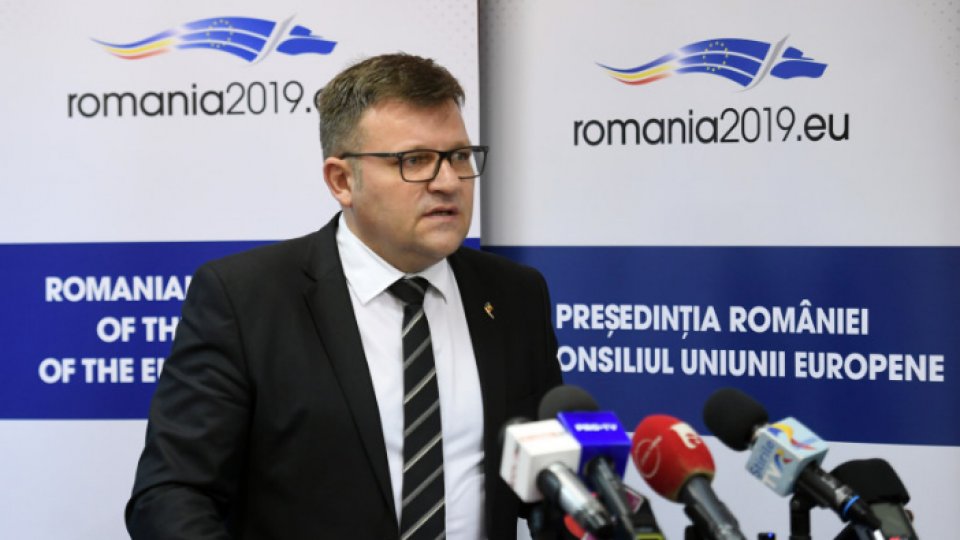Romania’s EU Presidency congratulated in Brussels
Romania was congratulated for provisional agreements on all four priorities in labour and social affairs, in only two months of holding EU Council Presidency.

18 Martie 2019, 16:29
Romanian Minister of Labour and Social Justice, Marius Budăi, led the debates of the Employment, Social Policy, Health and Consumer Affairs Council (EPSCO) Council which took place in Brussels on Friday, March 15, where initiative on improving functioning of the labour market and proposal for a Regulation on the European Globalisation Adjustment Fund (EGF) were discussed.
Romania was congratulated on this occasion by European Commissioner for Employment, Social Affairs and Inclusion, Marianne Thyssen and also by several Labor Ministers from EU Member States for reaching a provisional agreement with the European Parliament on all four priorities in the field of labour and social affairs that Romania assumed, in only two months of holding the EU Council Presidency:
Directive on increasing transparency and predictability at work;
Proposal for a regulation establishing the European Labour Authority (ELA);
Directive on the exposure of workers to carcinogens;
Work-life balance Directive.
In Brussels, European officials have reached a partial general approach on proposal for a regulation on the European Globalisation Adjustment Fund (EGF). Objective of EGF is to maintain or reintegrate workers into the labour market following redundancy in the context of restructuring processes by financing active employment measures. EGF assistance is added to efforts of Member States at national, regional and local level.
Discussions during EPSCO also aimed at allocating adequate resources to increase employment opportunities, especially for people who are not integrated into the labour market, and to take preventive measures.
EU Member States must also find solutions to cope with structural changes generated by rapid technological developments such as digitalization, automation, robotics and artificial intelligence, as well as increasing demand for different skills in the labour market. Phenomenon is also accentuated by demographic ageing and migration, so there is an EU-wide concern that all citizens, including elderly people, acquire and continuously improve the knowledge and skills that will enable them to remain active and independent.
“Developing skills for adults must remain a priority for all Member States in the context of socio-economic change in the EU. In the current context, people must understand that they can no longer rely solely on initial education and training. They need to update and renew their knowledge to meet the challenges of the labour market, and we must take the necessary steps to maintain a balance between vocational training and education, responsibilities of individuals and employers“, said Minister of Labour and Social Justice, Marius Budăi.
Ministers present at the EPSCO Council have analyzed measures that can be taken in the context of the European Pillar of Social Rights to better link employment and social protection policies, what tools are needed to strengthen national and local initiatives in order to create quality jobs that will lead to an increase in inclusion and what reforms are needed to combat effectively the unemployment.
Employment, Social Policy, Health and Consumer Affairs Council (EPSCO) works to increase employment levels and improve living and working conditions, ensuring a high level of human health and consumer protection in the EU.
Source: Romania2019.eu, Consilium













